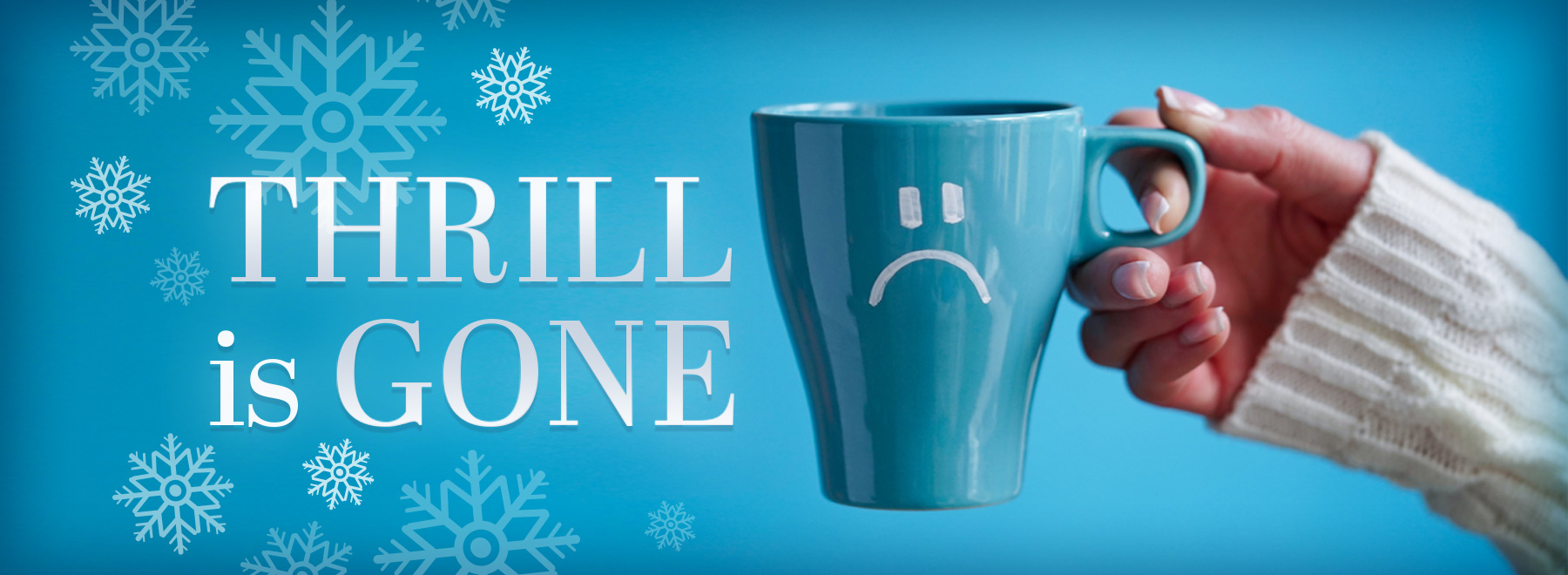Fight the winter blues with these tips, experts say
The holiday season can present challenges for many reasons. Navigating family dynamics, managing busy schedules and coping with travel-related stress can be difficult for everyone. However, for some, the abrupt changes associated with winter can significantly impact mental health.
Seasonal Affective Disorder, or seasonal depression, is a mood disorder experienced by approximately 5% of Americans. Triggered by a shift in seasons, this condition is most common among females, particularly in northern states.
However, many people not clinically diagnosed with the disorder suffer from several of the same symptoms during the colder months. The reasons behind this are multifaceted and vary from person to person, but certain factors come into play.

Dr. Danny Burgess, associate professor of psychiatry and human behavior at the University of Mississippi Medical Center, highlights daylight saving time as a major contributor. The late fall and winter months can disrupt our biological clock, or circadian rhythm, as the changing cycle of day and night challenges synchronization with wake-sleep patterns and sunlight exposure. This can lead to alterations in sleep, mood and hormone levels.
Reduced exposure to sunlight can impact melatonin production, affecting neurotransmitters like norepinephrine, dopamine, and serotonin—which are crucial for normal brain function. Melatonin increases in winter due to limited sunlight exposure, potentially contributing to winter blues. Serotonin, influencing mood regulation, may decline in production during the winter, exacerbated by reduced daylight hours.
Additionally, some people experience heightened carbohydrate cravings during low-light months as carbohydrates aid serotonin generation. Limited sunlight access also decreases natural vitamin D production, potentially causing decreased energy levels and mood disturbances.
Symptoms may include anxiety, persistent sadness, carbohydrate cravings/weight gain, extreme fatigue/lack of energy, feelings of hopelessness, trouble concentrating, agitation/irritation, loss of interest in enjoyable activities/social withdrawal, sleeping problems (often oversleeping), and even suicidal thoughts.
Burgess noted that the time change can not only affect you internally, but it also plays a role in changing your routine and health behaviors, which can make a significant impact on your mental health and overall wellbeing.
“It disrupts our sleep schedule, our routine and even our habits,” said Burgess. “Maybe you usually go for a run or go to the gym when you get home. But when it gets dark earlier in the day and colder outside, you may not stay committed to your normal health routine.”
Burgess said that while he doesn’t see many patients that have seasonal affective disorder, he recommends the same treatments for patients who are having trouble coping during the holiday season.
“One of the best treatments is light therapy or phototherapy,” Burgess said. “This is a lightbox that you can get easily—even on Amazon. Since our bodies are denied a lot of light in the winter, light therapy can be very beneficial. It’s great because it can help people on a daily basis. It is a little bit more intense than the light we get outside, so you only have to use it for 20 to 30 minutes a day. For a lot of people, this helps immensely.”
He also recommends taking vitamin D supplements and being consistent with taking medications you may be prescribed. But what he finds most valuable is simply knowing that being down with the holiday blues is a normal thing that can happen.
“Awareness is important,” Burgess said. “In one of my clinics, I see people with chronic medical conditions who already have mental disorder diagnoses related to their condition. I also see medical students. For them, I’m often their first therapist so this is their first recognition of those types of things. For my patients who have existing mental health disorders, I like to assure them that their condition isn’t getting worse. This time of year can tend to exacerbate things for a lot of people.”
If you are experiencing symptoms of depression, you should consult with a physician or psychiatrist to help manage your treatment.
To schedule an appointment with UMMC Behavioral Health and Psychology, call (601)-984-6925 or visit umc.edu/healthcare/make-an-appointment.
The above article appears in CONSULT, UMMC’s monthly e-newsletter sharing news about cutting-edge clinical and health science education advances and innovative biomedical research at the Medical Center and giving you tips and suggestions on how you and the people you love can live a healthier life. Click here and enter your email address to receive CONSULT free of charge. You may cancel at any time.



